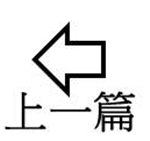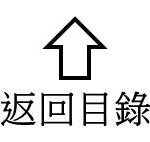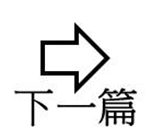– Translated by Vivian Tsang
我喜歡看陳平教授的「眉山論劍」,近日看到他「學習了今年兩會之後,我想提四條建議」的視頻,很想提出一點意見。
I am a fan of Prof. Chen Ping’s YouTube channel “The Sword Duel (of Thoughts and Practices) on Mount Mei.” Not too long ago, I saw his most recent vlog. He said, “Having studied the two meetings at the federal level, I have four suggestions.” I was moved enough that I also have a few things to say.
他提出的建議,是有關民生改革的雙軌制,簡單來說便是:一、農村土地改為承包制;二、延長婦女的產假,而且可以由丈夫代替;三、企業與大學合辦社會福利事業,如為職工建宿舍等等;四、重視由家庭教育培養出來的人才,不可由高考一試定終身。這些建議都很好,由這些建議,我想起了《周易》的「變」。
His suggestions relate to a multi-track framework in policies and their implementation. Simply put: 1. Extending farmland rights (therefore, responsibilities) in the household responsibility system; 2. Extending maternity leave, and inclusive of both parents, such that the breadwinner regardless of gender can opt to remain the breadwinner; 3. Corporate and university co-contribute to infrastructure, such as residential facilities for students and workers, pre- and post-training; 4. Elevating the importance of family and apprenticeship training, de-emphasizing exam-based certification at the college/university level as the only form of training recognized.
These are wonderful suggestions. And because of them, I thought of the notion of change in I-Ching.
《周易》說「變」有三種,即是「變動」、「變化」與「變通」。可以簡單解釋一下這三變
There are three types of change according to I-Ching. They are change, movement, transformation to adaptation.
(Translator’s note: I-Ching is a system of 64 hexagrams, each hexagram is a symbol consisting of six lines as a metaphor or an analogy of a phenonmenon in nature, in human affairs, or a combination of the two. Each line is subjected to change, such that a hexagram can be changed to another hexagram.)
變化是一爻變,陽爻變為陰爻,陰爻變為陽爻。何以這爻會變呢?因為顯現為陽爻時,其實有一陰爻潛伏於陽爻之下。陰爻的情況亦然。這潛伏的爻,可以說是潛力,也可以說是基礎。倘如潛伏的潛力或基礎發揮功能,那就可以顯露出來,已顯現的爻,反而變為潛伏。
Change in I-Ching refers to a line change in a hexagram, where a yang line may be changed into a yin line, or a yin line may be changed into a yang line. What gives rise to the change? Because when appearing as a yang line, there is in fact a yin line hidden behind, and likewise for the appearance of a yin line. This hidden line can be a hidden potential or an unseen foundation. When what is hidden manifests itself, it manifests into an observable phenomenon. However, at the same time, what has already been manifested would in turn becomes hidden.
變動是卦中的兩爻互換,例如五爻是陰,二爻是陽,在適當的情形下,就可以互換為五爻是陽,二爻是陰。
Movement refers to the swapping of two lines in a hexagram. For example, say the line at the fifth position is yin, the second is yang. Under some circumstances they swap positions.
變通是由爻的變化或變動,顯現出一種良好的狀態,這就可以改良原來不好的現象。
由此可見,變通是長遠的變象,例如鄧小平提出改革開放,就顯現出中國特色社會主義與宗旨。變化是單軌,因為只有一爻變。變動則是雙軌,因為有兩爻變。現在陳平教授提出雙軌制,便等於是《周易》中所說的變動,而不是變化。
Transformation to adaption is a case of via change, or via movement, manifesting a favorable equilibrium, such that an unfavorable phenomenon is transformed. Therefore, this transformation is a form of change in the long run. For example, President Deng Xiaoping in his proposal of liberalizing the Chinese market in the 1970s, over time it becomes clear it is the principle for implementing socialism with Chinese characteristics. Whereas the notion of “change” is a single-track change, for there is only one line change; movement is a dual change, for there are two lines that have been changed. Now the framework proposed by Prof. Chen Ping is a multi-track framework, it is equivalent to I-Ching’s notion of movement, not merely a change.
用這原理來看他的建議,前三點問題很少,第四點問題便多了。因為前三點只是國家改變政策,第四點便牽涉到企業與國家制度的競爭,因為這是教育制度的競爭。
Based on this observation, his first three suggestions should be straightforward enough. It is the fourth one that is problematic. Because the first three are simple changes. The fourth one involves the competition between corporation interests and framework at the federal level, for this is also a competition between frameworks of education/vocational training.
目前的教育制度是由西方傳來,不但教育的方式不合理,連考試制度都不合理。你看看初中、高中、大學的教科書,大部份教材重複。我是念化學的,陳平教授由物理學出身,所以拿這兩科的課本來舉例,我覺得將物理與化學分做三級來教授,實在浪費時間,讀這三級教科書,要花費十年,假如有一本編得簡潔而實用的教科書,相信讀兩三年便夠了。所以,將課程分為三級,至少浪費了學子七八年時間。考試制度又依這些課程來設立,出題目的人,亦未必是精通課程的高手,未必知道課程的重點及難點在那裏,只是依教科書來出題目,根本考不出學子的資質。
The current system of education in China comes from the West. Not only is the form of education unreasonable, neither is the exam system reasonable. Considering the textbooks are mostly repetitive and redundant in middle school, high school, and at the post-secondary level. I came from a Chemistry background personally. Prof. Chen Ping had a physicist training. I will take the two subjects as illustration. In my opinion, diluting the subjects in multiple grades, spreading over a span of ten years is a waste of time. A clean and concisely designed curriculum should not take longer than two or three years to cover the entire subject matter. Spreading things out over middle school, high school, and university is a waste of student’s life. In addition, the exams would likely be designed to accommodate how the subjects are taught. Such dilution is already a distortion of the content, the testing will thereby be a distortion, instead of targeting the key areas to test the students. Ultimately, whether the students truly have the aptitude in the subject matter, the exam results are not a true indicator.
陳平教授提出要重視家庭教育,實在不夠,最根本的改變,是廢除目前的教育制度和考試制度,這才是變通,由變化而變通,而不是雙軌的變動。或者說,陳平教授提出的重視家庭教育,學子可以由家庭教育出身來參加高考,只是試點,因為很難把目前的教育、考試制度作廢。但我可以肯定他的嘗試一定失敗,因為無論如何,學子都一定要讀目前流行的教科書,沒有讀過教科書,只讀教科書以外的書本,恐怕很難通過考試。此即有如不由五大劍派出身的人,很難給人承認他是劍客,所以五大劍派以外的劍手,只能在江湖上向人挑戰,然後才可以成名,那就等於是考試了。受家庭教育出身的人,又有多少挑戰的機會呢。
Prof. Chen Ping raised the importance of families in education. This is not enough. The more fundamental change is in the current system of education and certification, which is the true change as a transformation to adaptation, and not merely a multi-track movement. To say it another way. Prof. Chen Ping values the role the family plays in one’s upbringing, suggesting that homeschooling and home-based apprenticeship should not be barred from official exam/certification, which can at best be a form of regional experimentation, without a more fundamental re-evaluation and change in the system. Those who do not go through the textbooks, simply relying on knowledge acquired elsewhere, would most likely fail the accreditation process. This is essentially a case of outsiders challenging the mainstream. What are the chances where the outsiders can become acknowledged for being legitimate? There are no obvious venues to allow challenges to happen or to demonstrate the legitimacy of outside-of-mainstream training beyond the current exam/accreditation system.
要解決這個問題,只能是由變化而成變通,那就是要由大企業辦大學或學院,課程專注於企業的需要,同時還要很多大企業互相溝通,彼此可以互換學生,學生可以轉科。此外,一切教科書還要根據實用來編寫,學生可以由大企業分配實習,用以代替考試,畢業之後由企業錄用或推薦。這樣一來,由於企業有福利,工作有擔保,學生不需要受重重考試的折磨,相信重視家庭教育的人就會增加了。
To ultimate solve this problem, it has be a case of going from change to transformation to adaptation. That is, corporations/industries have to take a lead in vocational and post-secondary training, such that the courses respond to the needs of the industries. As well, there needs to be co-operation between industries, such that students can be exchanged for multi-disciplinary training. As well, textbooks should reflect on-the-ground practices, such that students can apprentice on the job as a substitute for exam-style accreditation. After graduation, students go directly into industries and directed to other industries. This way, employments are guaranteed, industries have a steady stream of on-the-job trained individuals. As well, students are no longer tortured by levels after levels of distorted exams. Those who value families and apprenticeships would in turn increase.
這樣做不是雙軌,是發展出來的單軌,也可以說是學子的另一條出路,變化沒有競爭,變動則有競爭。要想出國讀博士學位,就必須依照三級課程一步一步來讀,還要加一級碩士學位,由家庭教育出身,受企業培養的學人,很難再走出國留學的路,所以兩種學制,不是競爭,而是選擇。雖然我相信喜歡企業教育的人,會比級級讀書考試的人多,但恐怕辦起來很困難,因為沒有多少企業會支持這個想法。奈何奈何。結果可能只是大學准許「同等程度」的人報考,這樣便無法依變化而變通,只能仍然是傳統的單軌了。
This way, students are also given another way into a meaningful life. Change on its own does not lead to competition; transformation into adaption is when competition becomes possible. Consider the students who want to go overseas to study for a PhD. They must follow the entrenched route of middle school, high school, university to do so, with an additional hurdle of a Masters in between. But those who came from family-based training, or on-the-job training, it is very difficult to return to path of post-graduate training. Therefore, the two paths of training, they present a choice instead of a competition between the two. In my opinion, I believe many would prefer training on the job, many more than those who stay in the traditional school system.
I suspect the above suggestion would be difficult to implement, because not many industries would truly buy into it. This is unfortunate. The actual outcome would most likely be a case of universities allowing entry for those with “equivalent accreditation.” This way, there is never a true transformation into adaptation. In that case, we will continue to mire in a single-track world instead of a multi-track world.
 坎坎胡
坎坎胡



